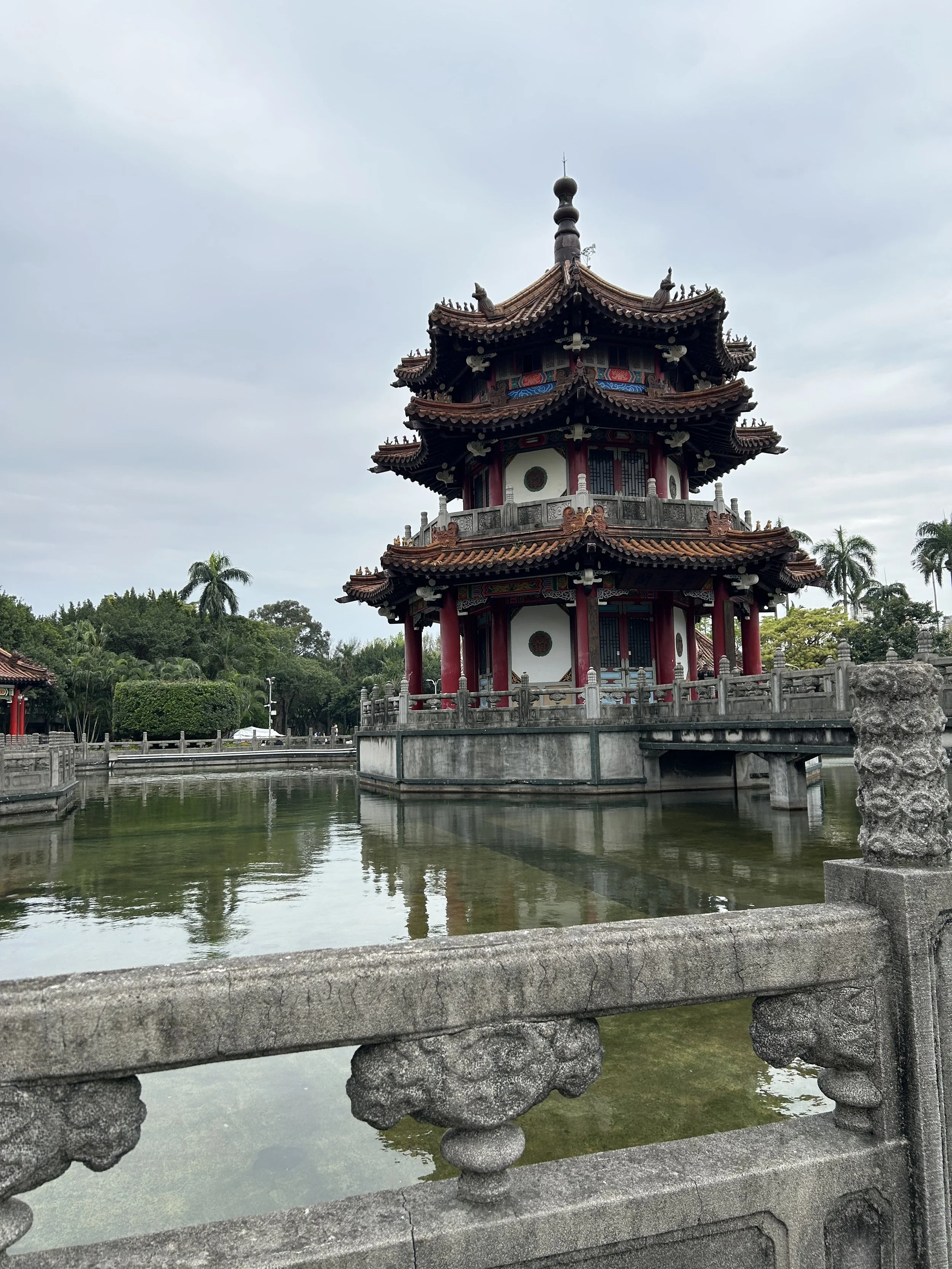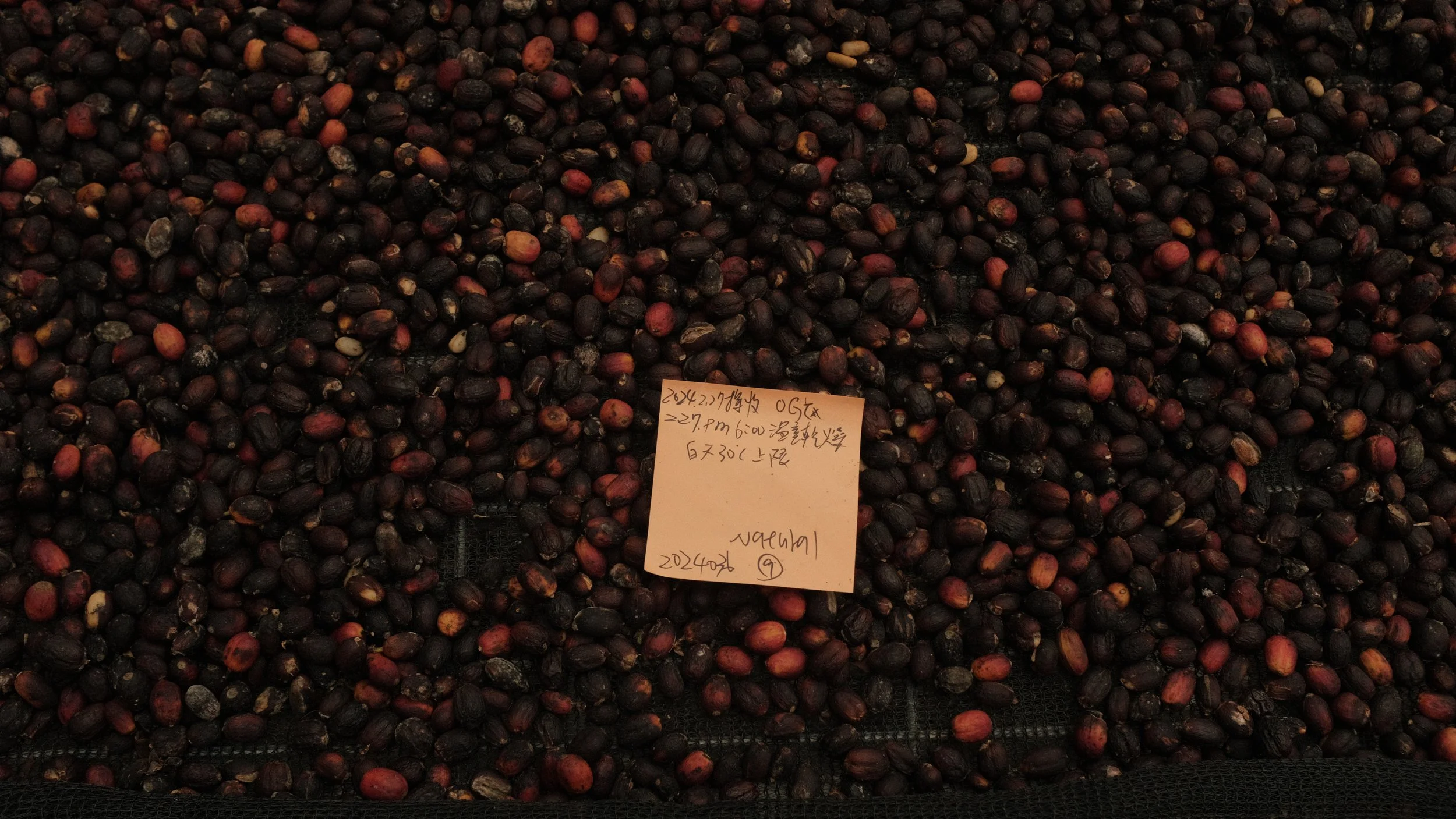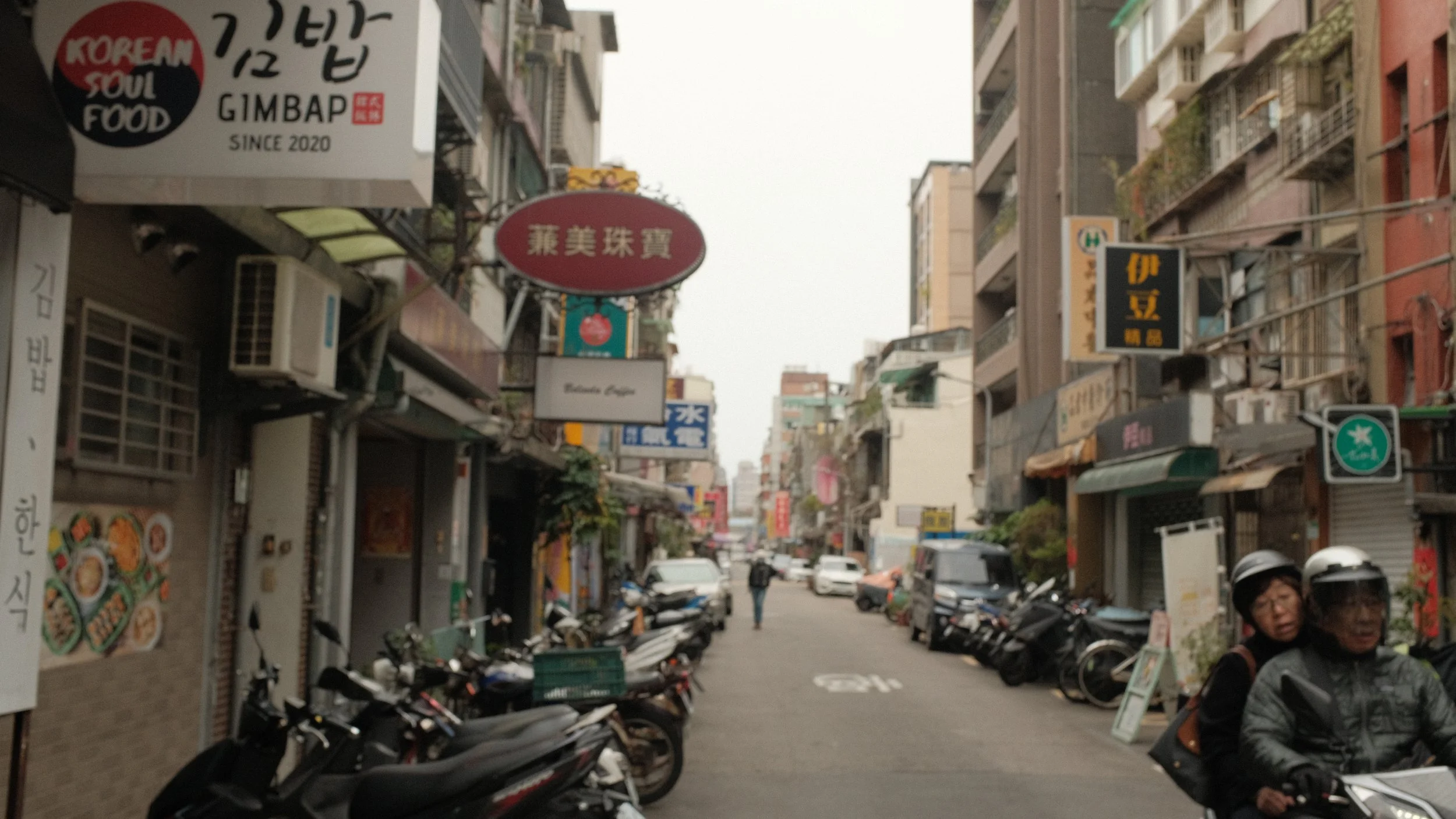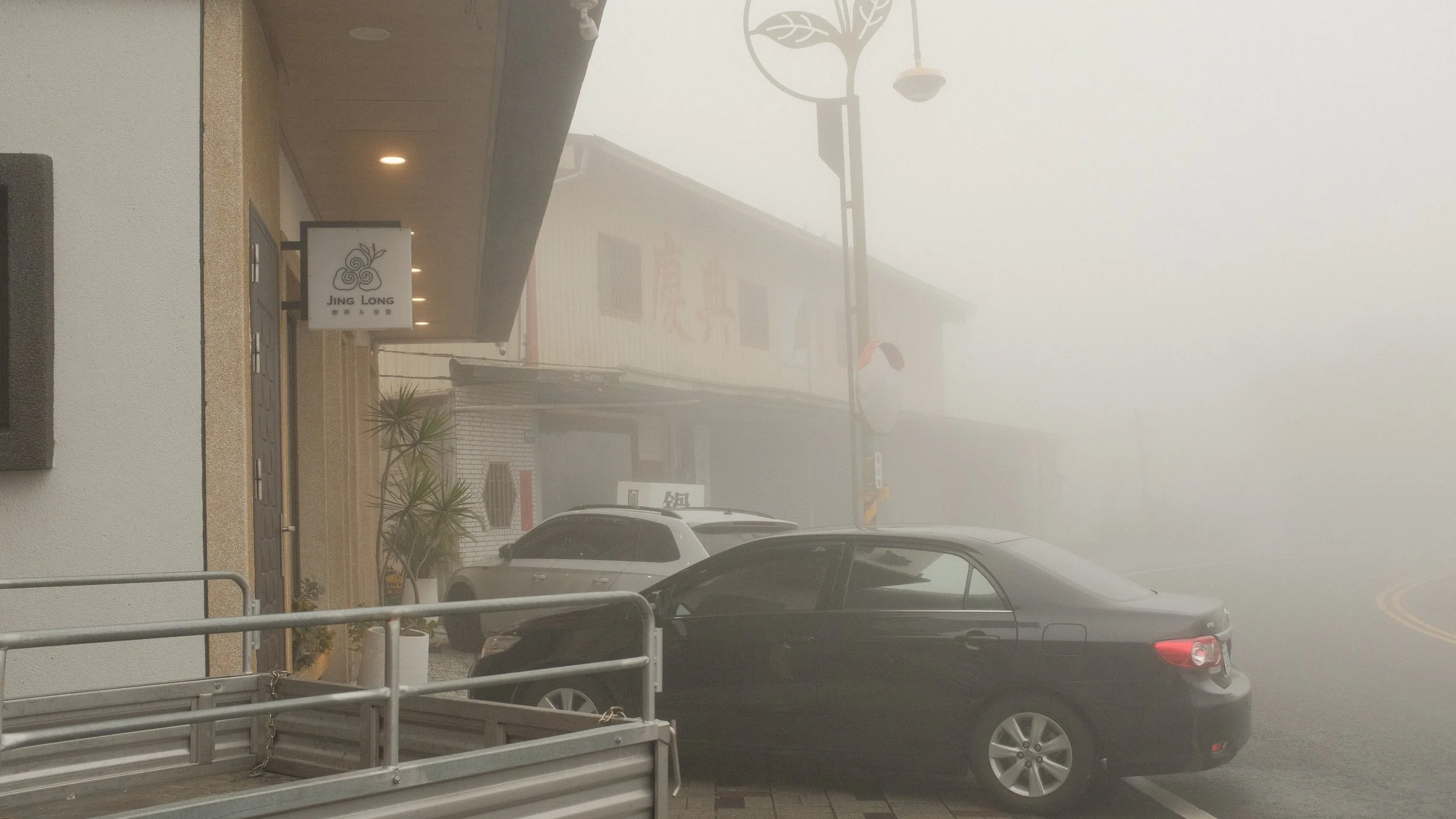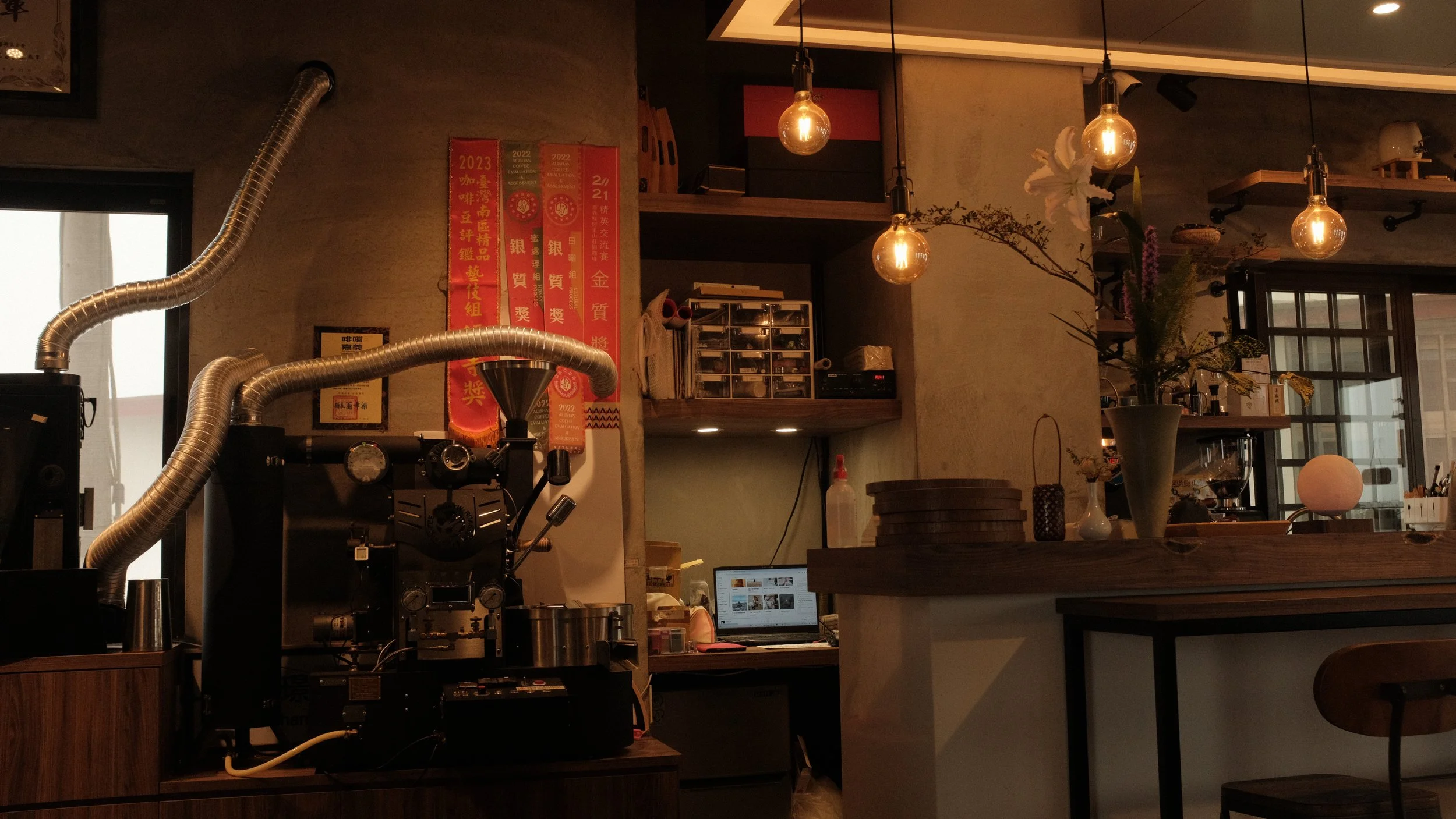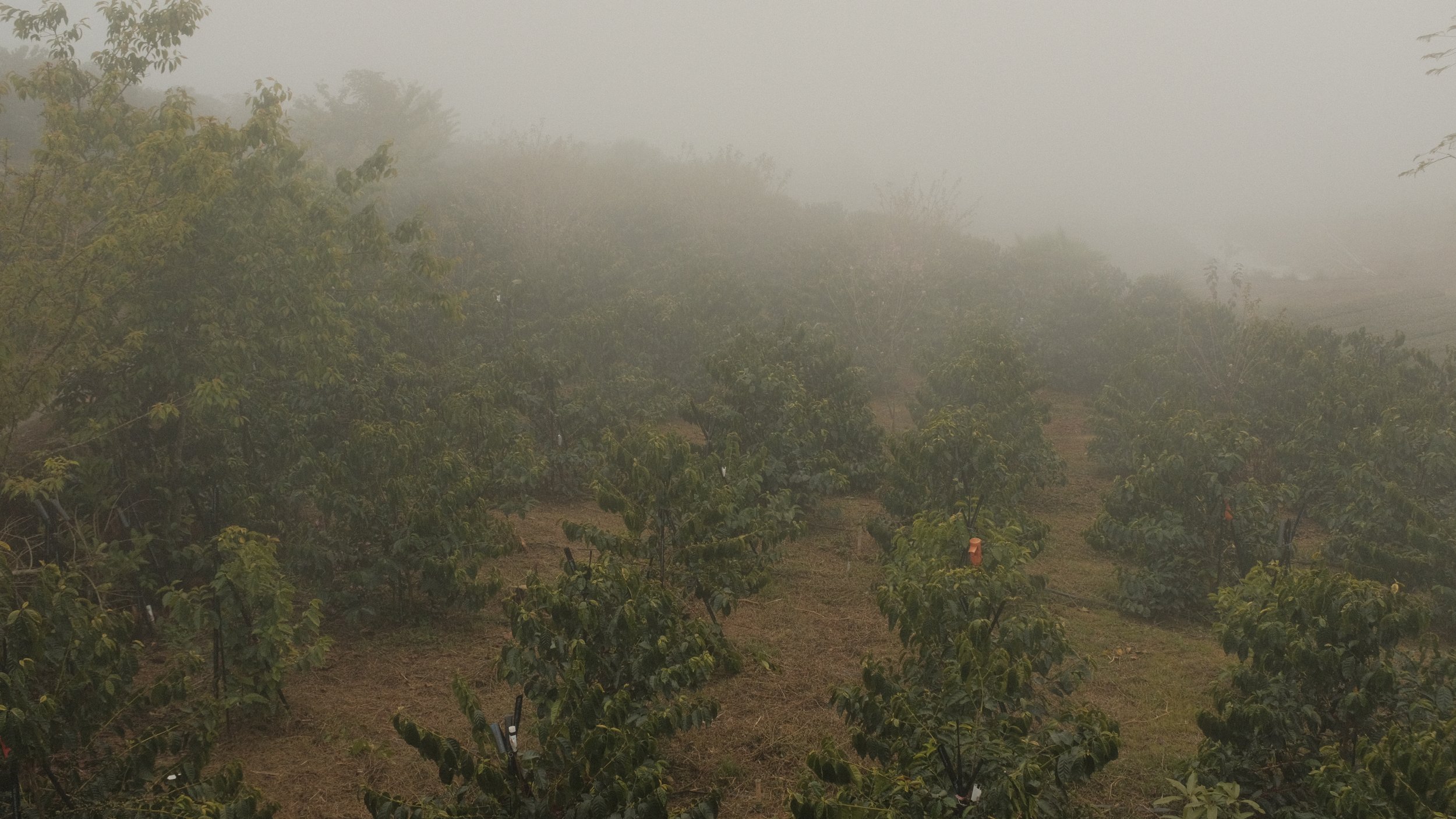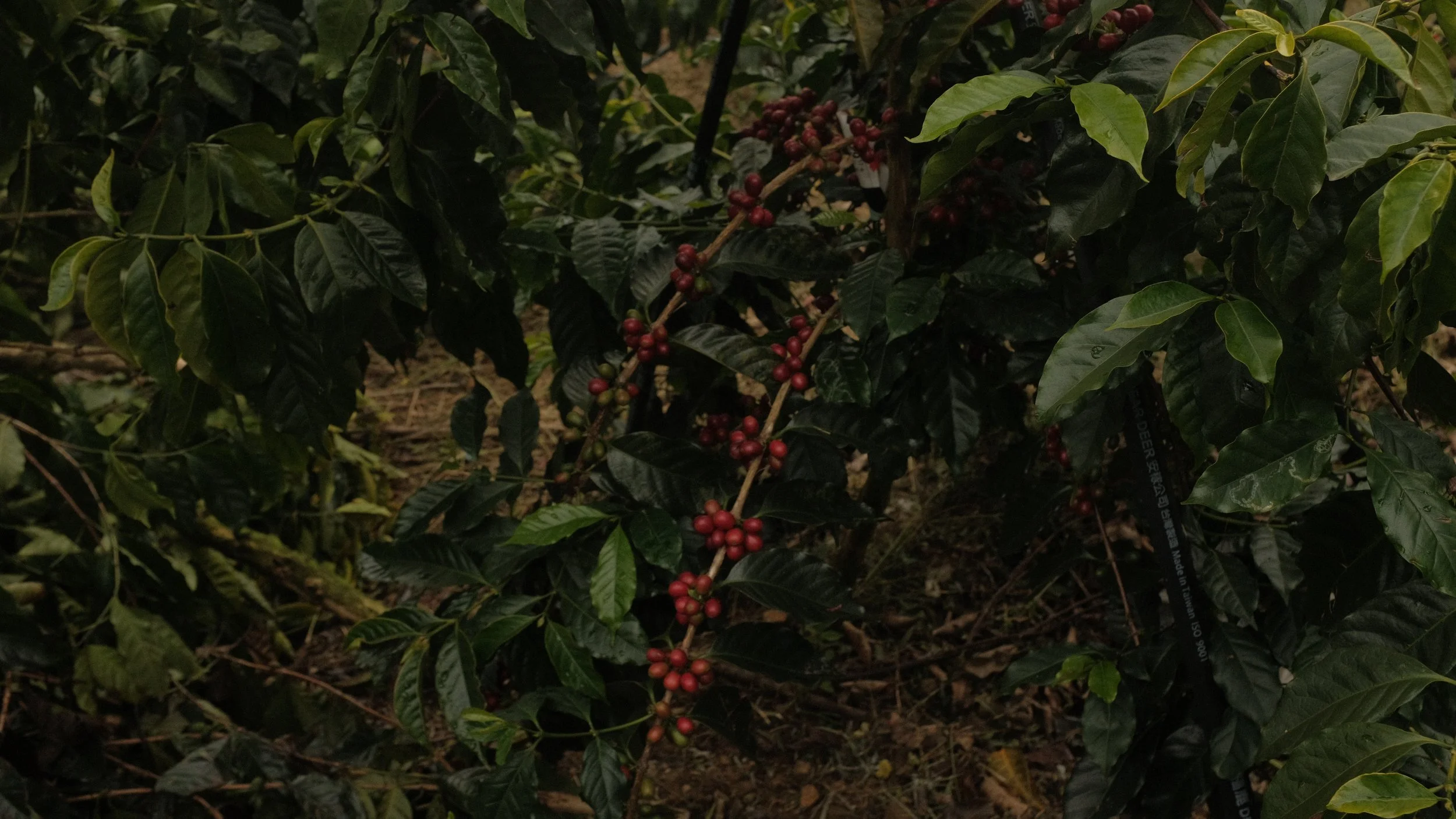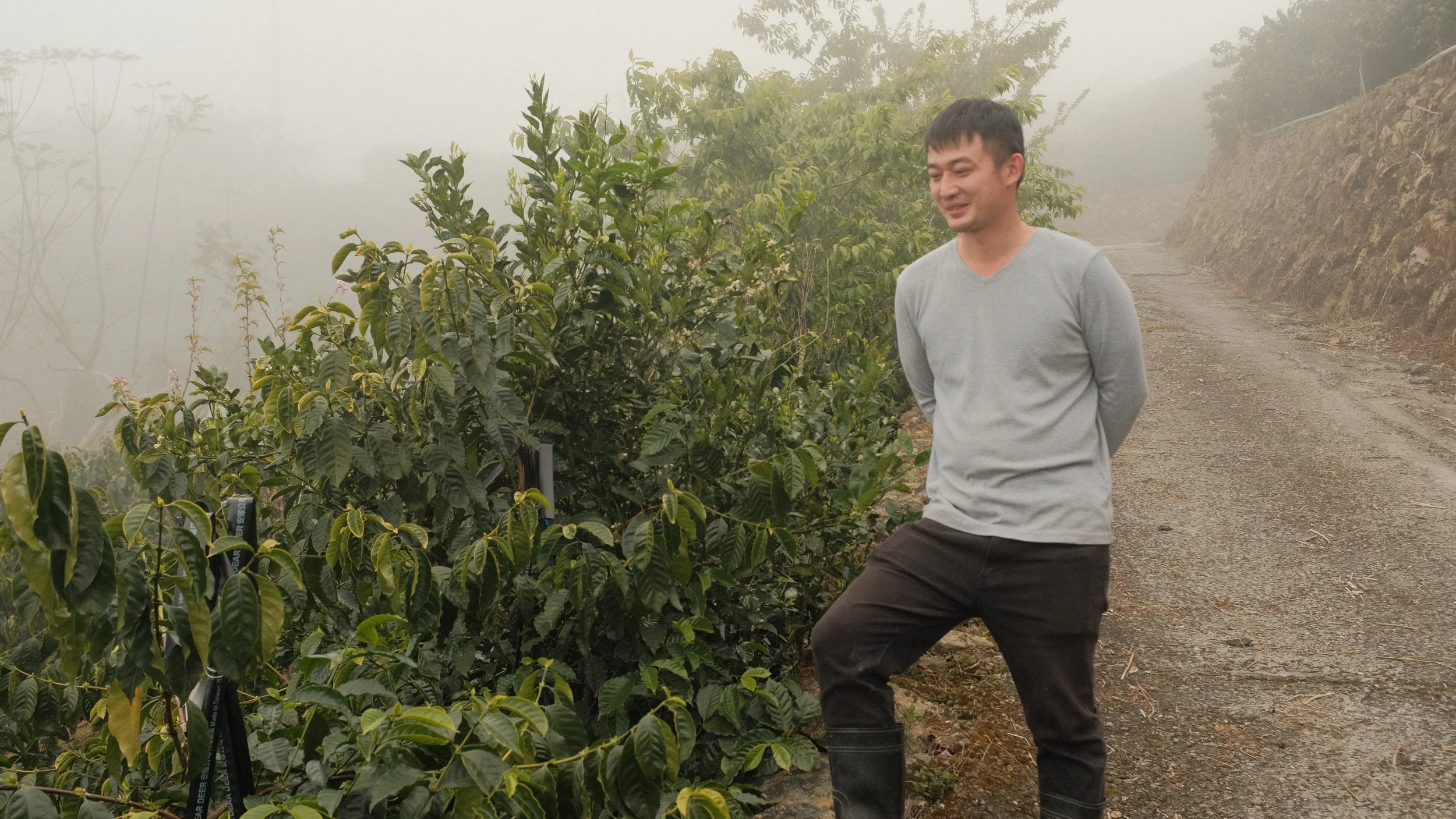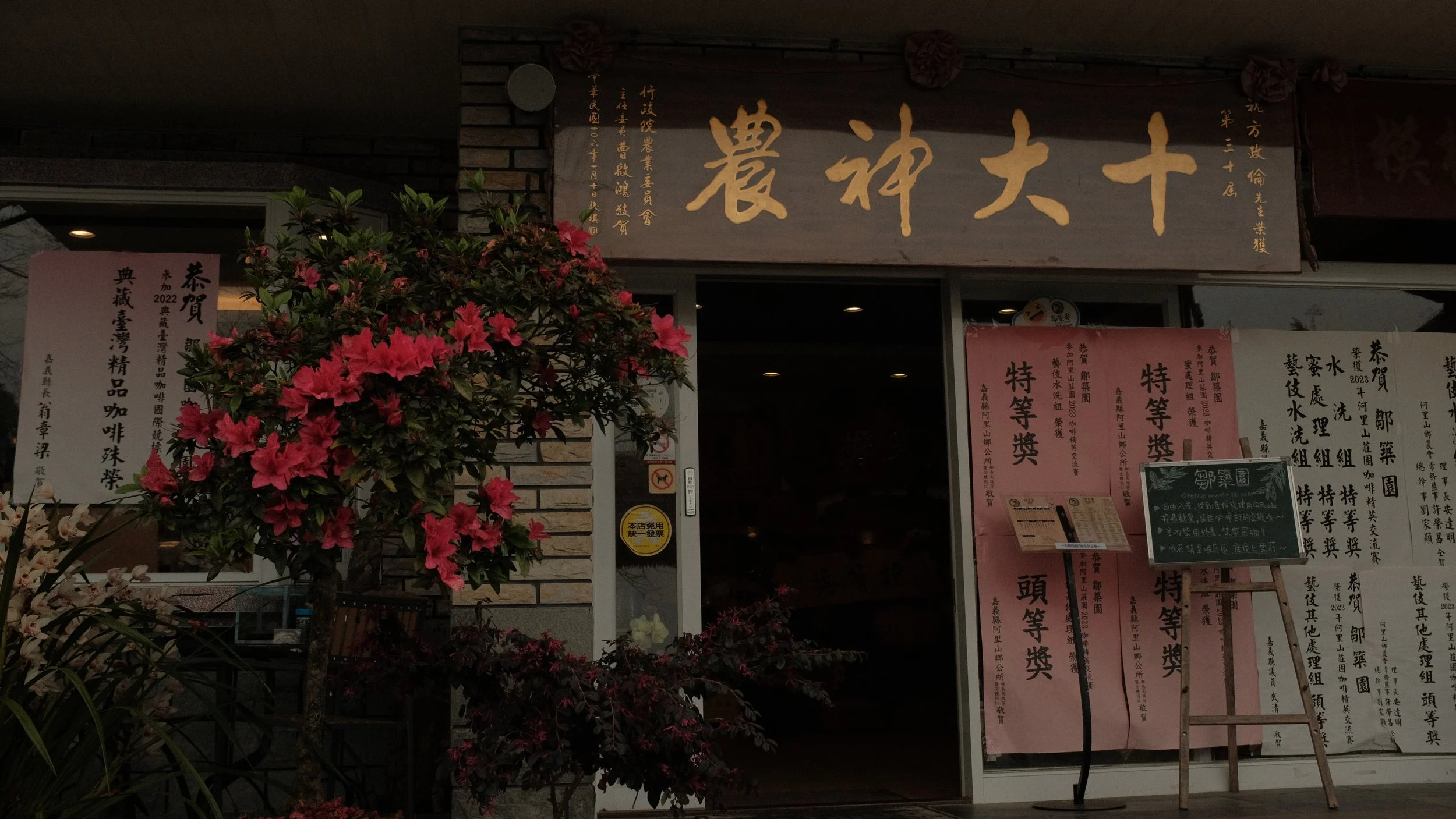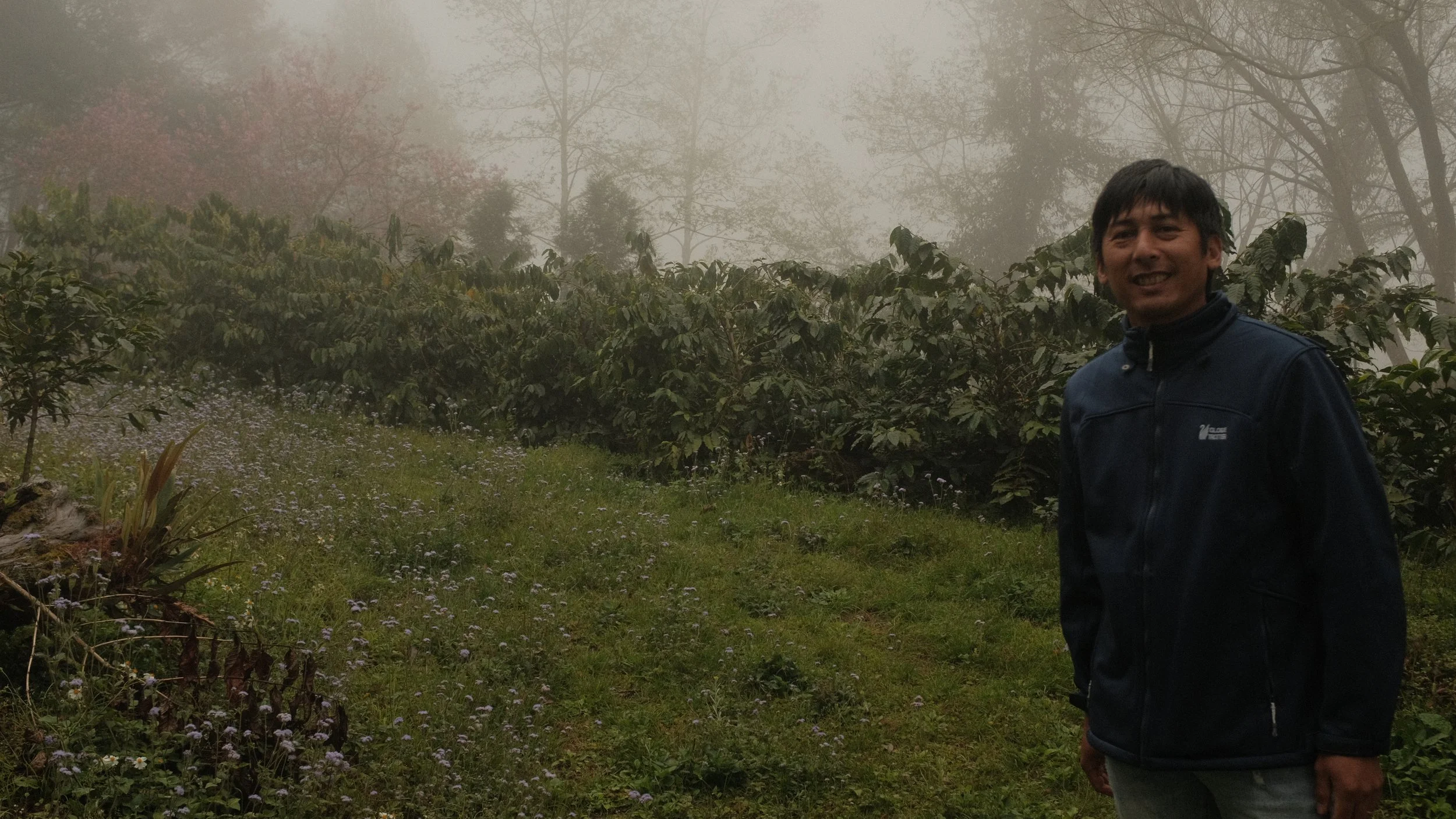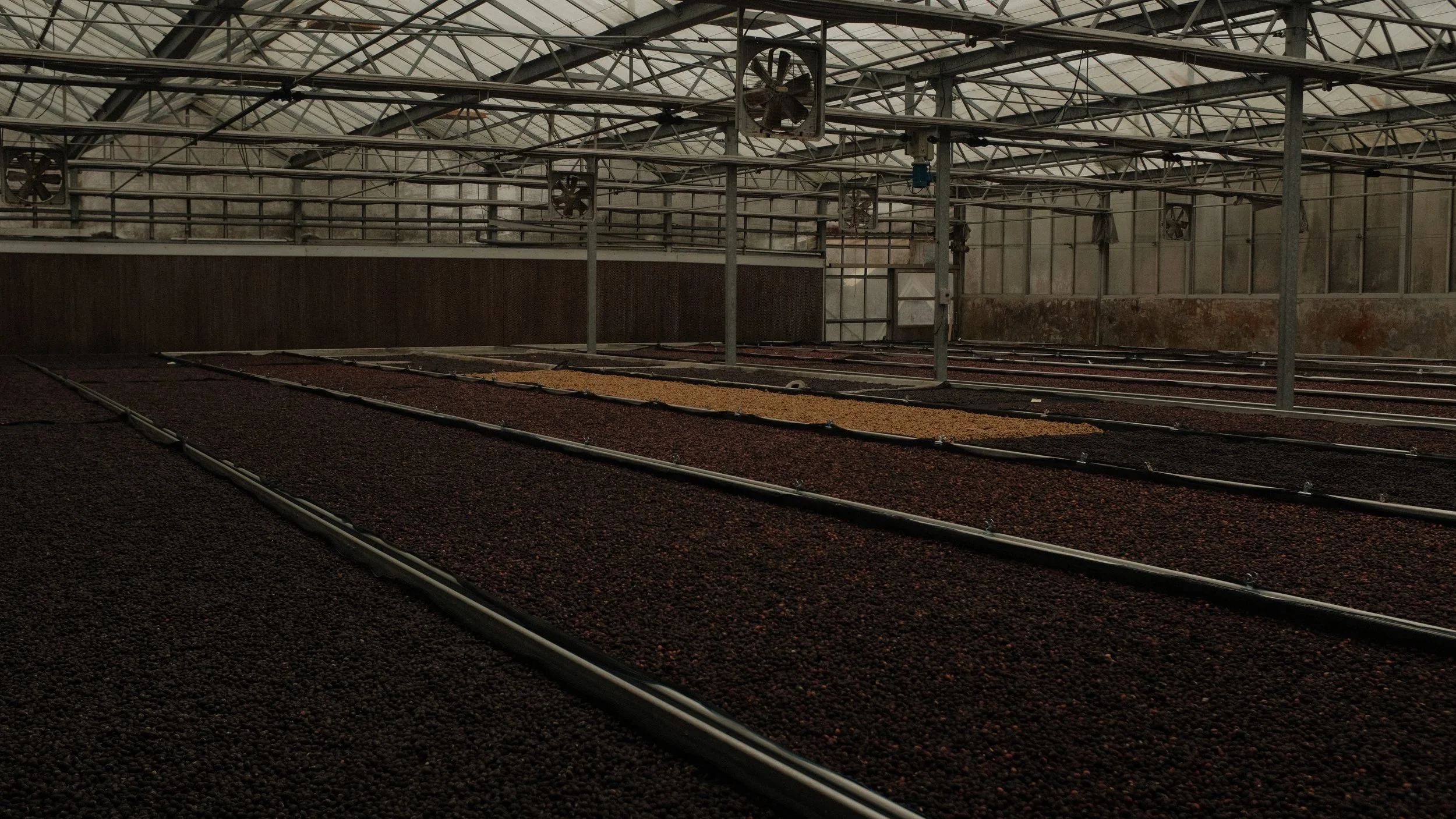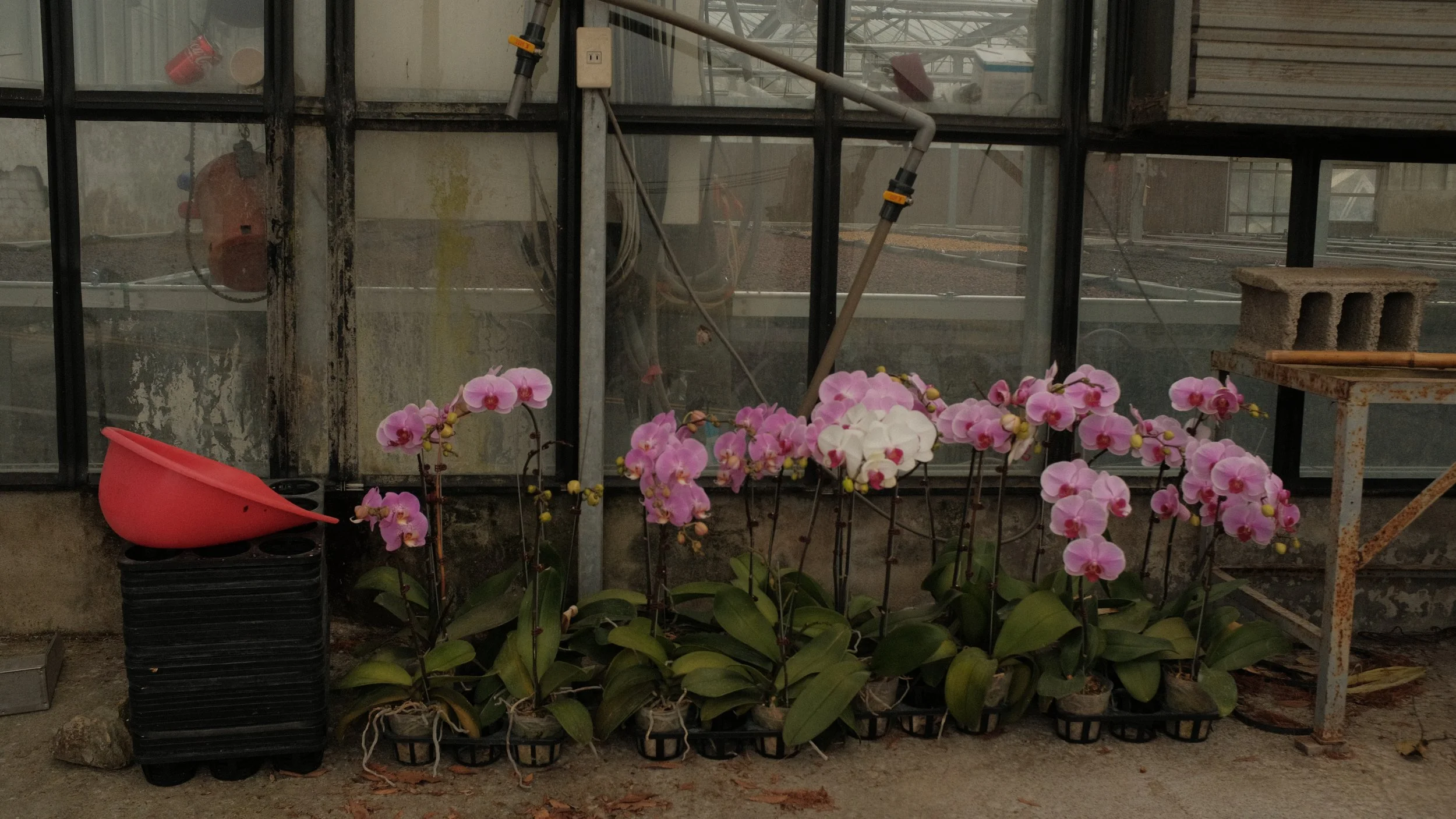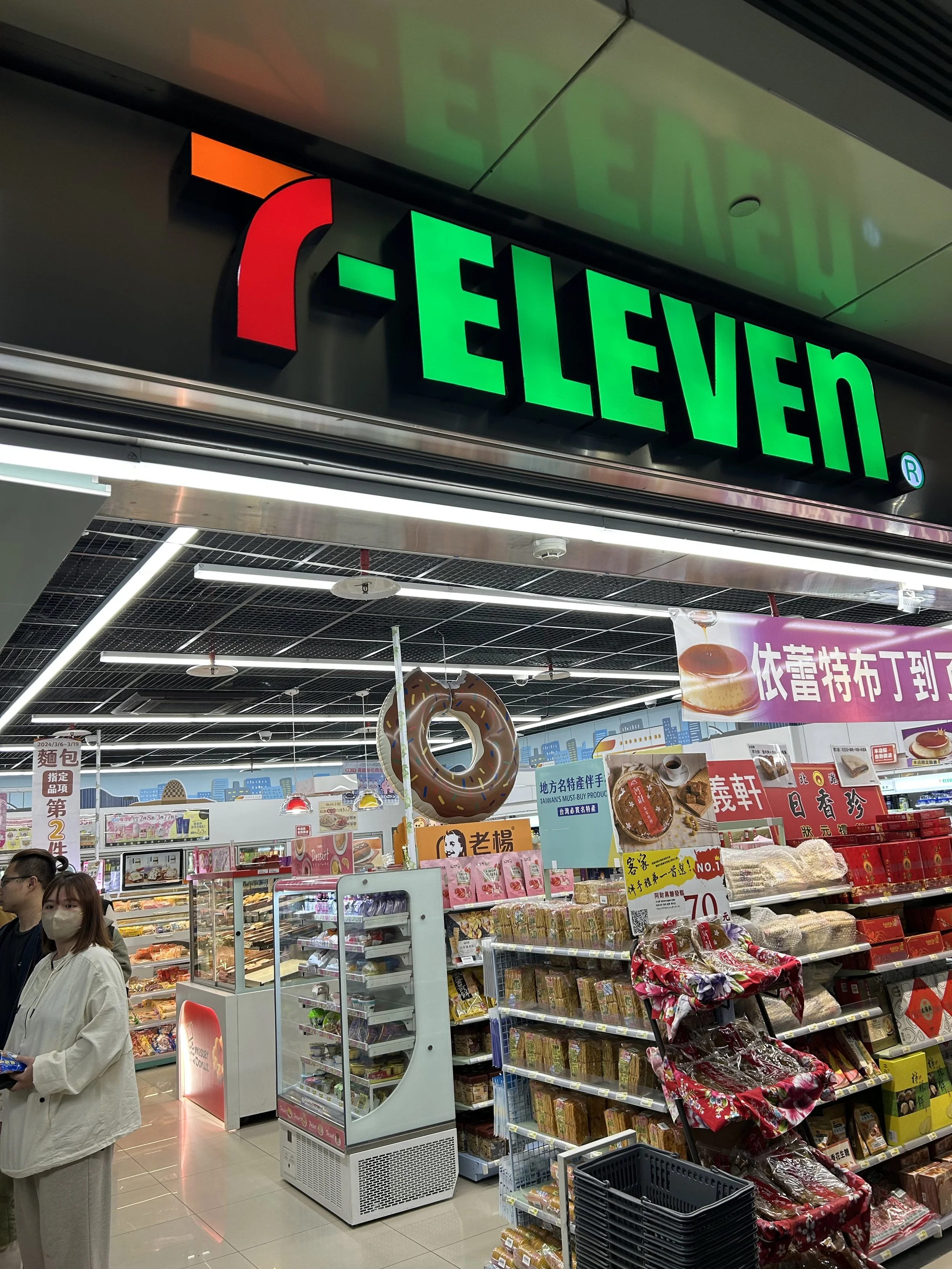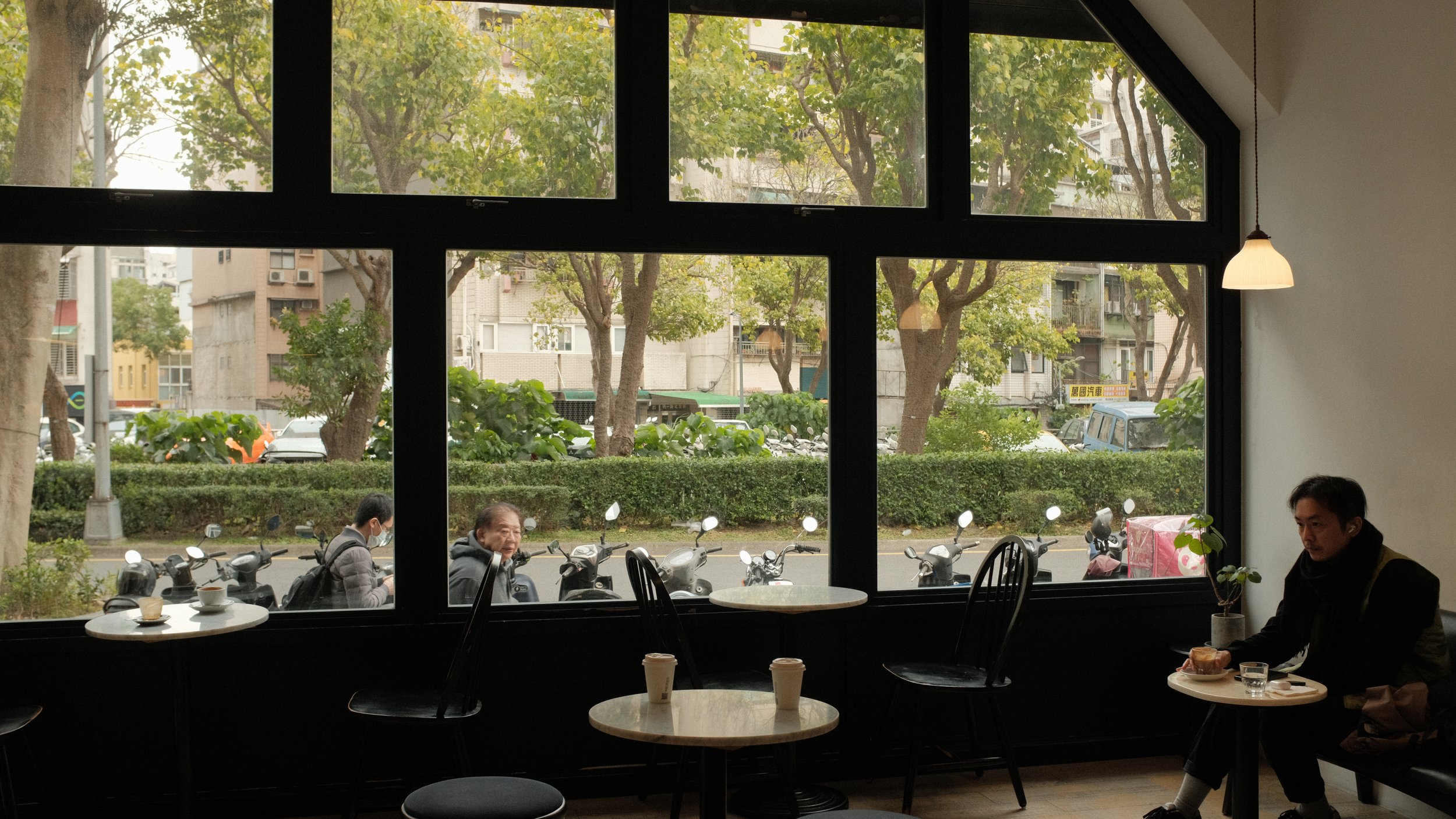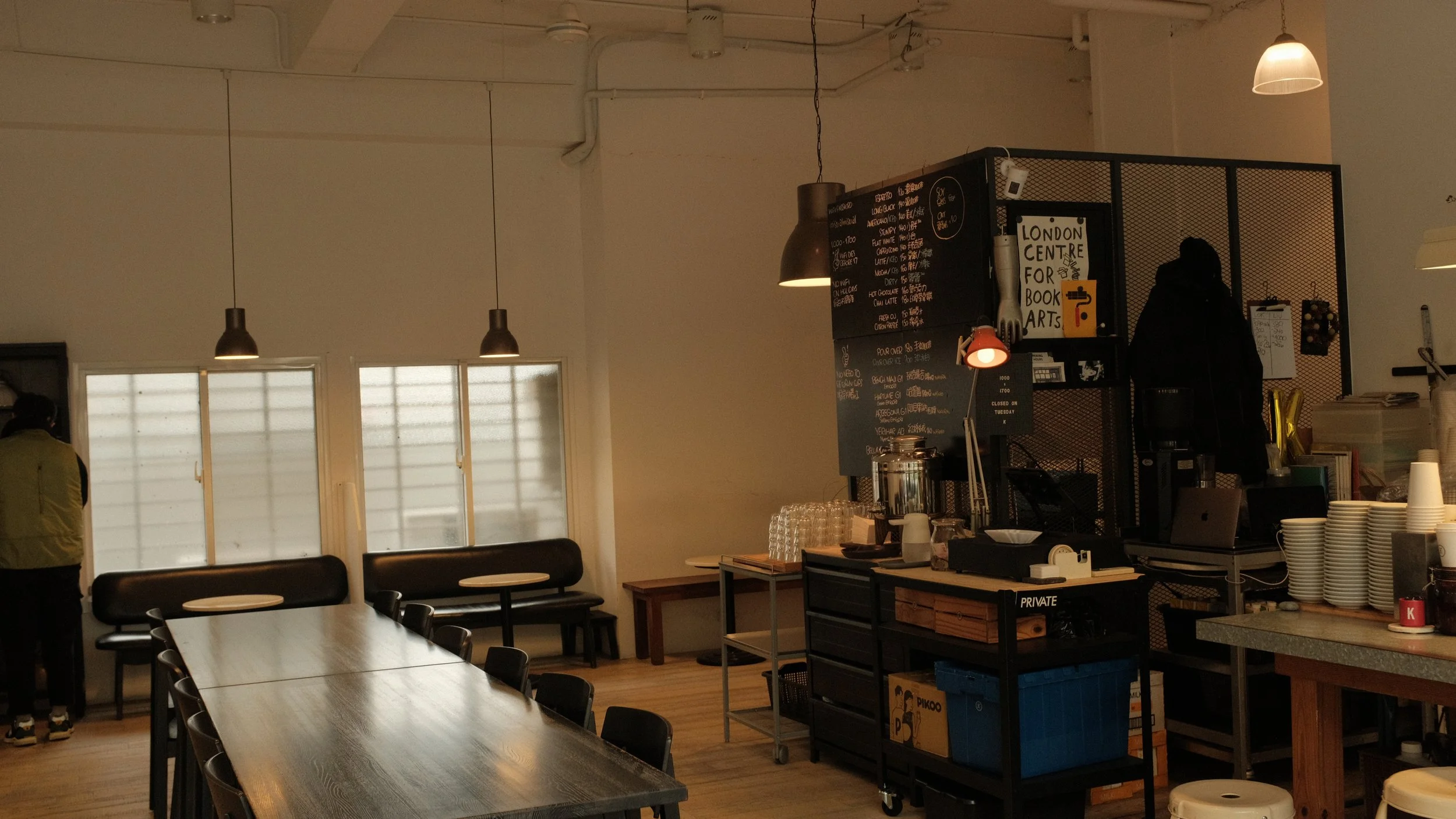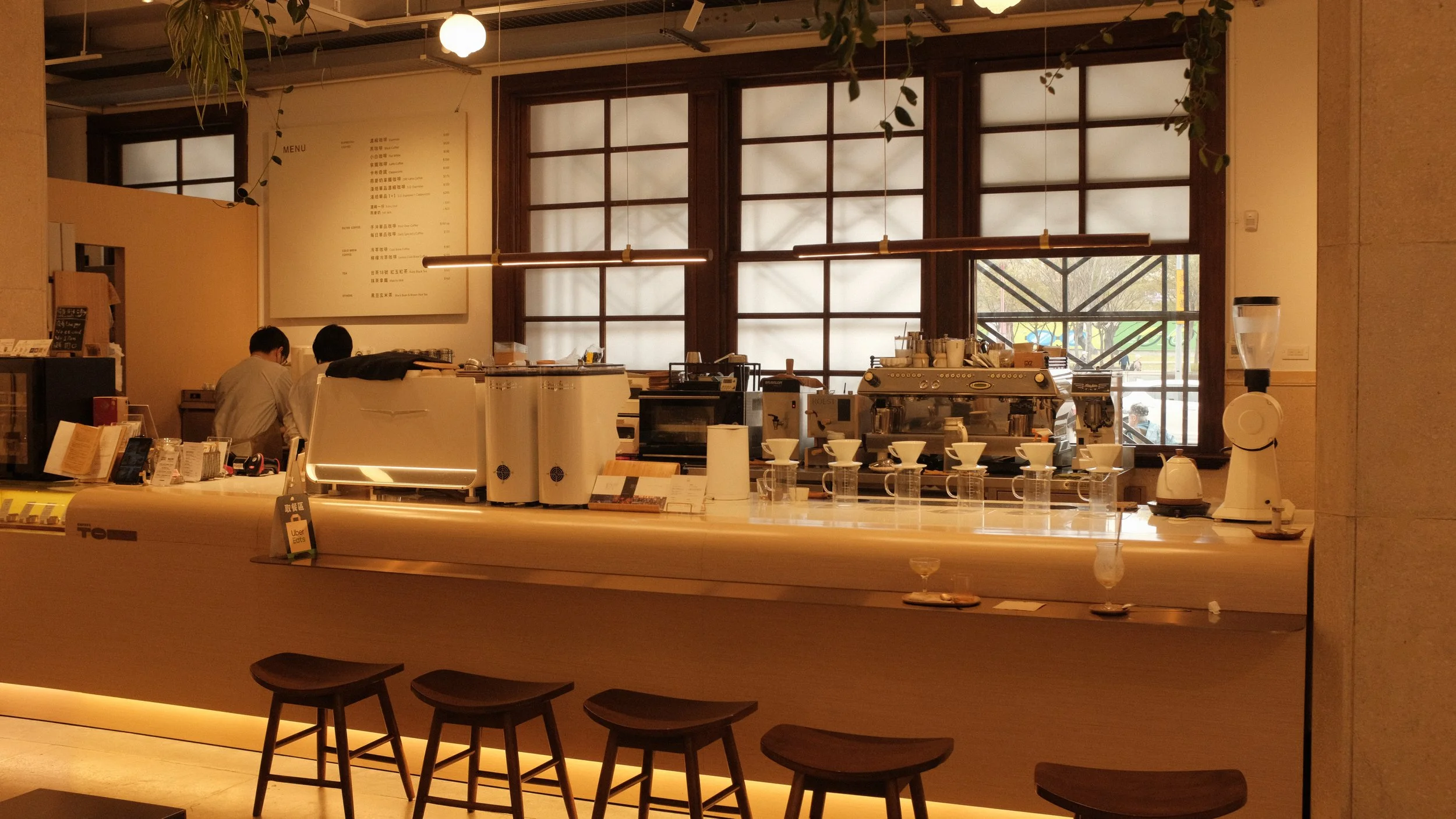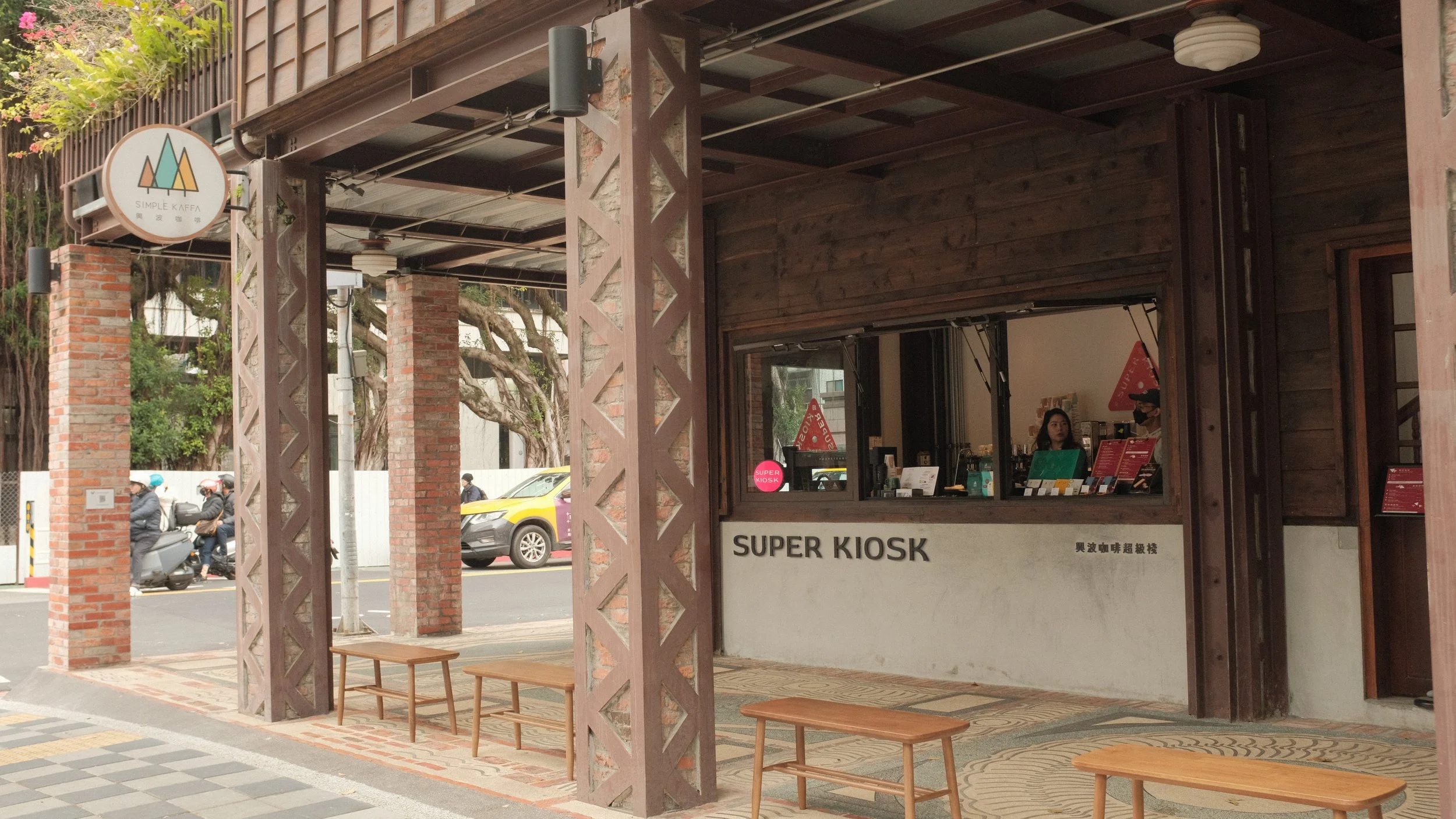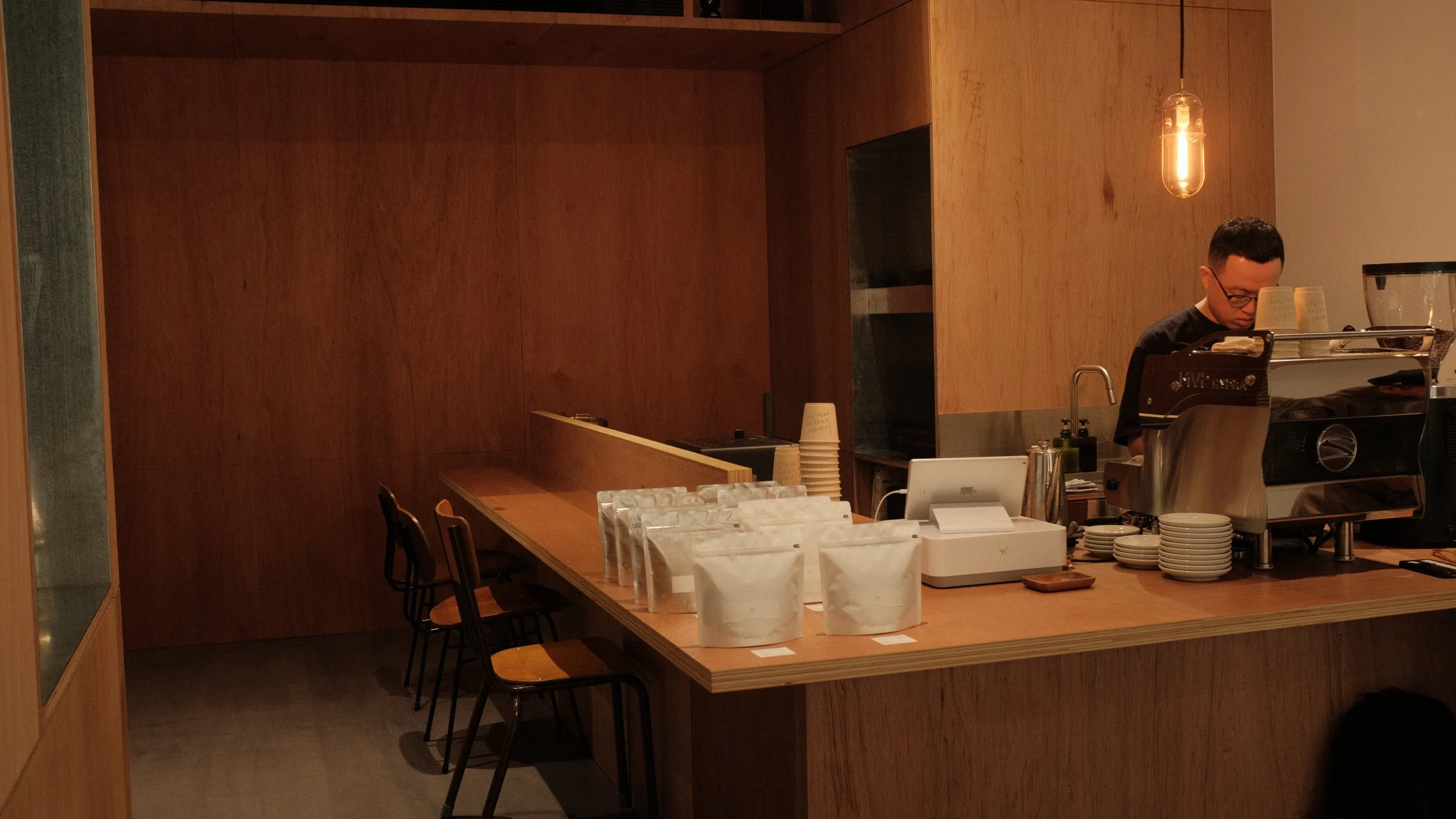The Island of Taiwan
Pagoda in Taipei’s 228 Memorial Park, Taiwan
Just off the eastern coast of China is the small but magnificent island of Taiwan. Grassy mountains, a bustling capital city, and a collection of truly wonderful people – this country beams with subtle brilliance. Known for its tea production and computer technology, many do not know that Taiwan actually has pockets of coffee growing throughout the higher reaches of the island.
Somehow I had the exceptional opportunity to visit this island in March of 2024. Thanks to a contact I had with Cup of Excellence (COE), I was able to connect with the in-country COE partners to visit some farms and meet some producers. What I discovered truly exceeded all my expectations.
Drying coffee cherries, Alishan, Taiwan
Coffee first arrived on the small island in the 1880s thanks to the British. In the early 1900s, Taiwan was governed by Japan, who pushed for Arabica coffee production. They brought over coffee seeds to fuel their own demand for coffee. In the 1920s, companies such as Key Coffee began planting coffee, and soon coffee encompassed 1,000 hectares of land. The beverage became something consumed by the upper class and coffee shops, or Kissaten (喫茶店), opened for people to gather to discuss art, politics, and literature. These shops had a heavy Japanese influence, which is where much of Taiwan’s coffee culture and consumption began.
Taiwan was released to China in 1945 after the war, and coffee production halted. It took some time for Taiwan to revamp their coffee consumption since tea was a primary beverage consumed by the Chinese. Coffee shops began to spread after independence was gained in 1949, including Fong Da, which opened in 1956 and is still operating today. The US intervened in the 1960s, assisting locals with growing coffee to supply the American market. Yet, agricultural production was not a main priority for the Taiwanese government, and the focus/support went to other sectors.
In the 1990s, the demand for higher quality coffee increased, and led to a wave of new shops and in the 2000s, specialty shops took root, offering some truly remarkable coffee to its patrons. Over 10,000 coffee shops are brewing coffee in Taiwan – quite a lot for such a small island. And what about local production?
In the counties of Tainan, Chiayi, Pingtung, and Yunlin, coffee thrives in the high altitudes and cool temperatures. Yet, production is so small that nearly 99% of the coffee grown in Taiwan is consumed within the country. With high production costs, the coffee here can be expensive making it less appealing to producers to export. Most producers are sometimes referred to as part-time growers, with other careers such as growing other crops, working in the local government, or being blue collar workers. Roughly 20% are full-time coffee growers, some with their own coffee shops to showcase their beans. These farmers are typically first-generation coffee growers, since coffee production was not a desired crop in the past, with tea and orchids being a preferred source of income.
Bustling street, Taipei, Taiwan
I arrived in Taipei late at night, after an extremely long flight from Las Vegas, NV. The city seemed so small and cute as my car drove me to the Airbnb I would be staying at for a couple nights. Quiet and dark, I had no idea what was in store for me. The apartment was so tiny, like almost everything else in Taiwan. Cute little animated creatures were everywhere and nearly every other building was offering some type of food.
I slept peacefully and woke early due to the strange world of jet lag. I worked from my apartment for an hour or two before showering in the tiny bathroom. There were not many coffee shops nearby, so I ventured to a local chain to sip something before meeting with my guide. I think I had nearly gone 24 hours without coffee…so this basic cup of coffee was saving me.
Airbnb near Dongmen MRT (subway station), Taipei, Taiwan
I then set off to meet with Neil, Jen-An, Lin, Best of Taiwan Cup of Excellence (COE) Pilot National Coordinator and Taiwan Coffee Laboratory Researcher. He has been working in the coffee industry for a number of years. He is now working with the team running the COE in Taiwan, highlighting the exceptional coffee growers throughout the country.
We began our journey via train to Alishan, where we would rent a car to venture into the mountains to visit coffee farms. He was so lovely and shy, but so knowledgeable. I honestly could not believe I was in Taiwan and already had a friend…
Neil enlightened me so much about coffee in Taiwan. Coffee is a challenging crop to grow, so when a producer takes on the challenge, they have to make long-term plans and understand the market can be finnicky. These producers are generally interested in growing high-quality coffee based on passion and expanding the Taiwanese coffee sector. Land is expensive since Taiwan is a small island nation, and labour can be pricey – making Taiwanese coffee, on average, $30 per kilogram. Surprisingly, a common varietal grown in Taiwan is SL 34.
Thanks to efforts by various groups, Taiwanese coffee is gaining prominence throughout the world as something truly unique and remarkable. With these efforts, producers may be able to begin exporting more quantities to other countries, thus increasing income, and creating a future for coffee in Taiwan.
Neil notes that “according to the annual survey conducted by the Coffee Industrial Alliance of Taiwan (CIAT), there are at least 300 coffee farms in Taiwan.” And in 2022, “according to the annual survey conducted by the Agriculture and Food Agency, Ministry of Agriculture (AFA, MOA), Taiwan produced approximately 980 tons of coffee in 2022.” Just for reference, Brazil produced 3,558,000 tons of coffee in 2023. Of the coffee grown in Taiwan, roughly 2.7 tons was exported, equating to 1% of overall production, according to the annual survey conducted by the CIAT.
The producers in Taiwan are unique, exceptional, hard-working, and forward thinking. The COE allowed the world to unearth these wonderful people in Taiwan, and now, growing coffee in Taiwan is gaining prominence, and the coffee is some of the best in the world.
Jing Long Hot Pot Shop, Alishan, Taiwan
In the misty mountains of Alishan, a township in the county of Chiayi, there are a collection of exceptional producers in Taiwan. After our train arrived at the Chiayi station, we walked to a nother location to rent a car. Neil drove us gradually up into the mountains where the clouds greeted us. It was chilly and eerie but so thrilling. The rich soils make this a prominent area for tea production, and many beetle nut trees grow on the slanting slopes. It is here where we stopped to meet Yen-Chang Su. The small businesses on the side of the road looked so adorable and quaint. A peaceful world, almost from a film. The car pulled up to a hot pot shop that belonged to Yen-Chang Su. I immediately realized the hunger deep within, so was glad we were having a meal. The inside was humble, with coffee also being served, I was eager to try some Taiwanese coffee.
Jing Long Coffee Roastery, Alishan, Taiwan
The hot pots were served, ordered by Neil, and we munched on a vegan stew that we cooked ourselves. All in the mountains of Alishan, surrounded by heavy fog. It was truly a remarkable experience. Yen-Chang came and sat with us and ordered a variety of coffees for us to drink. Each sip was beautiful, delicate, and bright. I loved this coffee, this moment.
Drinking coffee with Neil, Jing Long Coffee Shop, Alishan, Taiwan
Next, we hopped back into the car to visit his farm, Jing Long Coffee Manor. Situated at 1,380 masl, this farm was once all tea until 2017, when Yen-Chang pursued coffee production after studying agriculture at university. He experimented with different varietals, and even asked the Tao Gods which varietal to choose. The gods advised him to plant Gesha, and now his coffee farm is 1 hectare dedicated to coffee.
Jing Long Coffee Manor farm, Alishan, Taiwan
Once we arrived at his farm, it was covered in clouds and a bit hard to see. But still impressive! Rows of healthy coffee trees, neatly planted in rows, tea farms neighboring the sturdy trees. He then invited us to his processing facilities, which was one of the most state-of-the-art machinery I had ever seen. Elevators, moving roof structures, and intricate crafted dryers. He was so happy to show us, and tell us about his work. Farmers in Taiwan are passionate about being the best at something, and even though coffee is not a main export, the coffee growers here are trying their best to truly be the best.
Ripe coffee cherries, Jing Long Coffee Manor, Alishan, Taiwan
During the Taiwan COE Pilot competition, he won 4th place for his Natural Gesha, which was sold to a roaster in South Korea. A delicate, floral, and bright coffee. Mechanical dryers are used here since the air is so moist, which is normal for producers to utilize because of tea, another crop requiring mechanical dryers. Yen-Chang experiments with Natural, Washed, and different fermentation methods. He also roasts his own coffee for the café and for domestic consumption.
Yen-Chang Su and his coffee farm, Jing Long Coffee Manor, Alishan, Taiwan
We bid him farewell and headed back into the clouds. Our bellies full and warm, coffee pulsing in our veins, I was energized to see more.
Further down the road is Zou Zhou Yuan, another coffee farm and café owned and managed by Cheng-Lun Fang. He actually comes from a well-known tea and moth orchid producing family and is a member of the Aboriginal Zou Tribe. As a certified Q-grader, Cheng-Lun has acquired a true taste for excellent coffee, yearning to grow some unique coffees in Taiwan.
Zou Zhou Yuan Cafe, Alishan, Taiwan
First, we arrived at his coffee shop, which was quiet but filled with so much coffee. We tasted some and had a few laughs. Then we walked over to see some of his processing facilities. A huge greenhouse with drying coffee, orchids, all insanely organized. We wandered around, felt the drying coffee cherries, and chatted about his ideas for the future.
Zou Zhou Yuan Cafe, Alishan, Taiwan
Currently, he has five hectares of coffee, starting his farm nearly 24 years ago. He no longer grows tea and has an intense focus on coffee. Although tea and orchids provide a higher income compared to coffee, Cheng-Lun is passionate about growing some excellent coffee to be known around the world.
Cheng-Lun and his varietal garden, Zou Zhan Yuan, Alishan, Taiwan
Something unique about Zou Zhan Yuan is that there is a varietal garden, where Cheng-Lun has gathered seeds from all over the world. With Geisha, SL 34, Typica, and even Mocha and Liberica – he truly has a remarkable and impressive work ethic and passion for coffee. His excitement and dedication revealed in the quality of the coffee he grows. We wandered around as he eagerly told me what varietals he had located and planted. It was so impressive!
After studying engineering in university, he was eager to return home and do something with coffee. Cheng-Lun brought his engineering expertise to the farm and is gradually improving how the farm functions. He even monitors the various temperatures throughout his farm with an app called Agri Weather, to understand how different conditions impact his coffee. With processing machinery from Brazil and Colombia, he has created an intricate and exceptional facility to process his coffee. He has specialized mechanical dryers for his coffees, and he records and monitors everything to understand the quality of each tree. There is a cupping lab and a roastery, with so much potential to create something big in the future.
Drying coffee Zou Zhan Yuan, Alishan, Taiwan
Cheng-Lun expresses his desire to help other farmers in the area process their coffee, to teach them about quality, and create a brand to be known throughout the world. With his work in his varietal experiments and refining his processing, this looks like it can be a possibility in the future. Only time will tell.
Surprisingly, he has also travelled to other producing countries such as Ethiopia and Costa Rica to learn more about how those places grow coffee with goals to replicate or adopt some of their practices. Someone truly dedicated to coffee. He hopes one day Taiwan can grow enough coffee to compete with these other countries and be known for its excellent coffee.
Beautiful orchids outside of greenhouse, Zou Zhan Yuan, Alishan, Taiwan
All of us walked around his other building which would be used for education and more processing. A cupping lab, unique dryers typically used for tea, and so much potential. I could see him really growing into some kind of coffee guru for Taiwan.
A Natural Gesha from Zou Zhou Yuan won ninth place last year at the COE Pilot in Taiwan which was sold domestically. He has plenty of dreams and goals for the future, and he plans to compete again in the next COE in Taiwan. Keep an eye out for this guy!
The foggy air of Alishan is cold and heavy, something different compared to other coffee-producing countries. Perhaps that is what makes Taiwanese coffee so special. With high altitudes, moist air, and dedicated producers, this creates for a truly beautiful cup of coffee.
As Neil and I headed back to the rental car office at the bottom of the mountain, the fog really set in. Darkness and fog was quite erie. And I was freezing! But we kept warm and talked the whole drive home about Taiwan, the culture, and coffee. It was so lovely and such a special experience. Once we reached the station, we loaded up on snacks at 7-11 and started the long journey home. I said goodbye to Neil once we reached my stop, he assured me we would stay in touch. As you see…we have since he provided me with all this information!
7-Eleven in Chiayi train station, Taiwan
Once back at my tiny apartment, I crashed and went straight to sleep, so overjoyed at all I had experienced.
Taiwan may not be known for its coffee production, but it is sure known for its excellent cafes, beautiful pour overs, and refined brewing processes. When visiting Taipei, specialty coffee shops greet you at every corner, some even offering locally grown coffee, that is actually quite extraordinary.
KiOSK coffee, Taipei, Taiwan
The next morning, I woke up eager to drink coffee! I started at KiOSK, where I was the first customer and actually met the owner. I had a lovely filter coffee from Kenya, and sat at the window whilst watching people trickle by. I was determined to have some local coffee…Neil had given me a special recomendation.
KiOSK coffee, Taipei, Taiwan
Before that, though, I was actually meeting with an old friend I met in England years ago. We sipped on coffee at a small spot that primarily specialized in pastries, and then wandered around the city. The city was bustling, so much to do! So we wandered to the Jianguo Holiday Flower Market to gaze at orchids. Then we went to a hot pot spot (my second of the trip!) and slowly boiled our food, catching up and laughing. The evening ended at a night market (something quite famous in Taipei) where I smelled the horrible aroma of stinky tofu and sipped on cane juice. A full and glorious experience! So lovely to see an old friend. Honestly…Taipei was filled with coffee, tea, food, and massage spots…so hard to pick one! After settling in for the night, I mapped out where I would get coffee in the morning…
Neil had recommended a place called Coffee To, where I could drink local coffee. So I made my way there after doing a quick hotel change. Taipei was cold! So I was happy to settle in at a coffee shop for a few hours. I wandered in and was so impressed with the beautiful cafe. Hidden inside a building one would not know housed some of the best coffee in Taiwan (and the world in my opinion)…
Coffee To, the best cafe in Taipei, Taiwan
Coffee To, is the perfect place to have a beautiful pour over and drink something from Taiwan. The coffee is roasted locally under the brand name, Café Sole, and it is quite spectacular. Lance, Cafe Sole and Coffee To founder, mentions that “the market for high-end tea is on the decline, while the market for specialty coffee is on the rise, the government has many incentives and supports to encourage farmers to grow coffee” revealing that coffee is indeed beginning to replace tea. A true shift in Taiwan.
It was strange, the cafe was next to this small indoor market with handmade goods. But there were plenty of tables and a gorgeous bar so I was eager. There were a couple of options to choose from for Taiwanese coffees so I selected an SL34 Natural from Alishan, from a farm called Amber Estate. The professional baristas began brewing the pour over. I paid and found my seat. Created my nest. And began typing away at my computer. The coffee was brought to me on a beautiful platter with a card explaining the details of the coffee. Without thinking, I took a sip. Immediately, the world around me dissolved. My mouth was electrified with a champagne-like flavor that I had never tasted before. It was an out-of-body experience and I was breathless. I held the coffee in my mouth and swallowed, eyes wide, soul happy. This was the best coffee I had ever tasted in my life…
Natural SL34 from Amber Estate, Alishan, Taiwan
No other coffee compared to this one in Taiwan. I wandered around the rest of the day and the following morning. Tasting coffee at diffferent shops including Simple Kaffa (well known worldwide) and Powder Coffee Roasters - the two that were shining brightly. I actually went back to Coffee To to buy the coffee and bring it home. But they were sold out! The owner, Lance, approached me and offered to roast me a fresh batch on his small roaster. I returned 20 mintues later, my luggage in hand, and thanked him, heading off to the airport to venture to Vietnam.
Simple Kaffa Super Kiosk location, Taipei, Taiwan
Only later did Lance message me, saying he roasted the wrong coffee, and that he would send the correct coffee with his friend to the US where he would ship it to my home. It did indeed arrive upon my return and I was able to serve it at my coffee tasting of East Asian coffees in Las Vegas. How special?
With support from Cup of Excellence, and interest from buyers all over the world, demand for Taiwanese coffee is only growing, domestically and globally. And with more demand, there will be more supply from the many exceptional producers in Taiwan. Hopefully soon we can begin to see more coffee from this wonderful island in the future.
Powder Coffee Roasters, Taipei, Taiwan
My time in Taiwan was truly remarkable and I feel so grateful to have met everyone I met, tasted the exceptional coffees, and so honored I had the opportunity to wander around those small but mighty farms. I will constantly dream about that SL34…
Onwards to Vietnam! 再見
Read more here.
